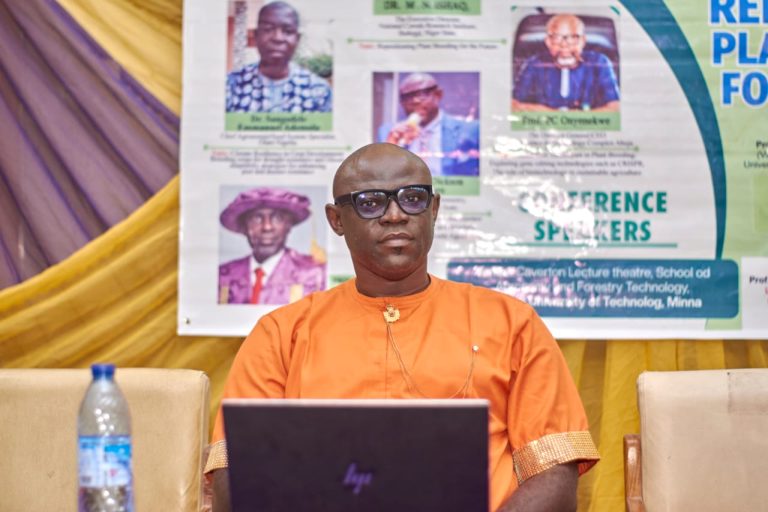A biochemist and biotechnological innovator, Professor Dickson Musa Achimugu has advocated the integration of AI-driven crop innovation into plant biochemistry and breeding, to revolutionize Nigerian agriculture.
He made the advocacy in his paper presentation titled “A New Era of Crop Design” delivered at the 3rd Annual Conference of the Plant Breeders Association of Nigeria (PBAN), hosted by the Federal University of Technology, Minna.
Musa envisions a future where AI decodes and enhances the genetic and biochemical makeup of staple crops such as cassava, yam, millet, and cowpea.
According to him, unlike the traditional breeding methods that can take years of field trials and cross-pollination, AI can simulate thousands of genetic scenarios in minutes, predicting traits like drought tolerance, pest resistance, and nutritional value with unmatched accuracy.
“Imagine a cassava that fights malnutrition, thrives in drought, and tastes just like the one your grandmother grew,” Musa said. “This isn’t science fiction — it’s Nigeria’s future, coded today.” he said it is Smarter, Safer, and Natural — Not Genetic Modification.
He differentiated between his approach and controversial genetic modification (GM) techniques that insert foreign genes into plants. Instead of, for example, placing a fish gene in a tomato, AI-driven synthetic biology would enhance a plant’s existing pathways or incorporate genes from closely related species.
Explaining that the idea is not about redoing nature, Musa stressed that “It’s about fast-tracking its best features. Every change is simulated before it’s made — ensuring safety, transparency, and public trust.”
Some of the benefits as stated by the academician is the ability of AI enhanced cassava to help fight Nigeria’s vitamin A deficiency, which affects over 20% of children according to research.
The paper disclosed a 25%increased vitamin A in sweet potatoes by a similar techniques in Uganda which given Nigeria’s biodiversity and tech-savvy youth, it coould not only replicate but surpass.
Highlights of more benefits are faster crop development which will reduce breeding time from years to months.
Climate resilience — tailoring crops for conditions ranging from Sokoto’s drylands to Cross River’s wetlands.
Economic impact — an African Bio-AI Consortium could generate $50 billion annually and create 2 million jobs by 2035.
He concluded by urging plant breeders to collaborate with data scientists, universities to train bio-AI specialists, and Nigeria to take the lead in Africa’s agricultural transformation.
“The future of agriculture isn’t in Silicon Valley or Geneva,” he declared. “It’s in Nigerian hands, cracking the code of life.”
By Anna Moses


